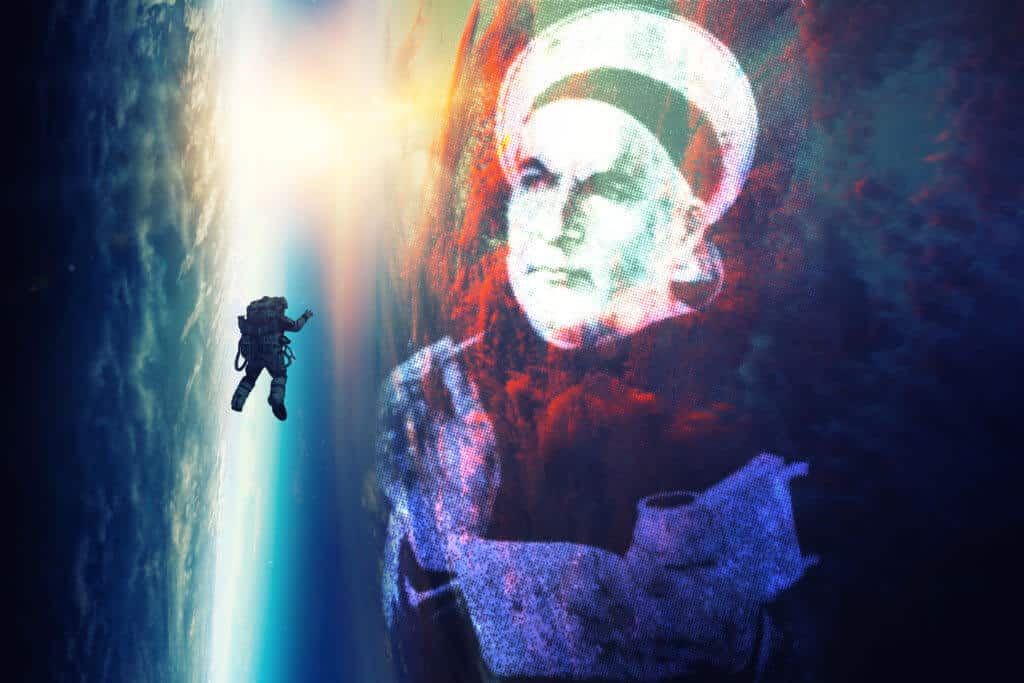I have benefited greatly from the array of arguments for God’s existence that apologists have used over the years, including the cosmological, teleological, and moral. In fact, I did my Master’s thesis at Ole Miss on William Lane Craig’s Kalam Cosmological Argument. I thought then as I still think today that the argument is sound. What is more, not only have I benefited from these arguments, I have taught them in my apologetics courses and have used them in debates.
With my increasing understanding of the philosophy of Thomas Aquinas (particularly his metaphysics), my focus and emphasis has changed over the years vis-à-vis the theistic arguments as reflected in the fact that, for the subject of my doctoral dissertation at the University of Arkansas I wrote on Aquinas’s “Second Way” (the second of his famous “Five Ways”)—his efficient causality argument for God’s existence.
I am in no way repudiating the more standard arguments as they are commonly found in contemporary (i.e., now) popular apologetics. I have, however, grown quite sympathetic to the opinion of the philosopher Joseph Owens when he said “Other arguments may vividly suggest the existence of God, press it home eloquently to human consideration, and for most people provide much greater spiritual and religious aid than difficult metaphysical demonstrations. But on the philosophical level these arguments are open to rebuttal and refutation, for they are not philosophically cogent.” [Joseph Owens, “Aquinas and the Five Ways,” Monist 58 (Jan. 1974): 16-35. The quotation is on p. 33.]
What might Owens mean by these words? Consider certain versions of the more commonly found theistic arguments. The Kalam cosmological argument says that whatever begins to exist has a cause. Since the universe began to exist (instead of having existed from eternity) then the universe has a cause of its coming into existence. Arguments for the beginning of the universe go back for centuries. While in the past these arguments have focused on mathematical issues such as the possibility of traversing an actual infinite length of time in the past, in their contemporary popular forms, these Kalam type of arguments marshal scientific data to demonstrate that universe has not always existed. Such scientific data include the big bang theory, the expansion of the universe, and the second law of thermodynamics.
Other types of theistic arguments have to do with the design of the universe. Again, in making such arguments, contemporary apologists often marshal scientific data showing features both of the universe and within the universe such as fine tuning (making biological life possible), information theory (indicating intelligent design of biological life), and irreducible complexity (indicating intelligent intervention in the history of life in contradistinction to the random mutation and natural selection of Darwinism).
Such arguments certainly enjoy a number of strengths. They appeal to common sense notions such as something can only begin to exist by being caused and the notion that anything that exhibits evidence of sufficient design is caused by intelligence. What is more, these arguments appeal to data from contemporary science with all its social, etc., clout.
It would seem, however, that these arguments also exhibit certain weaknesses (if ‘weaknesses’ is too strong of a term, perhaps ‘limits’ or ‘challenges’ might be more fitting). First, certain aspects of the science are disputed. To be sure, the fact that aspects of a given argument are disputed is not necessarily in itself a weakness. In this instance, what I am thinking is that because the science is disputed at certain points, the arguments are harder to defend for someone who is not scientifically adroit. While I am all in favor of a scientist (or someone sufficiently knowledgeable in the data) giving these scientifically rich arguments, being myself largely a secondary or tertiary source on the science, I am more comfortable giving philosophically based arguments.
Second, many of these arguments fail (in and of themselves) to demonstrate that the cause or designer of the universe still exists. What seems to follow, strictly speaking, is that the cause existed at the time it caused the universe to come into existence or at the time it instilled design into the universe. It says nothing (without further argument) as to whether the cause still exists now. Of course, apologists who marshal such arguments do not intend to leave the issue there. Many are aware that further argument is called for in answering the “Dawkinesque” Who-Created-God-or-Who-Designed-the-Designer objections. It would seem to me, however, that any attempt to shore up these arguments cannot but delve more and more into the realm of the philosophical.
Third, from a strictly Thomistic perspective, these arguments do not demonstrate that the cause or the designer of the universe is God. In other words, they do not (in and of themselves) demonstrate that the cause or designer of the universe has the attributes of classical theism. Now this might not be a problem for those apologists who deny certain of these attributes. Not all evangelical apologists agree that God is simple, immutable, impassible, or certain other of these classical attributes. This is especially true of those evangelical apologists who come to the question of God from an analytic philosophical perspective.
It remains, nevertheless, that these classical attributes have found their most robust defense in the context of the philosophy that has arisen in the Ancient Greek thought of Plato and Aristotle, and which has been incorporated and expanded upon in the Christian thinking of Augustine, Aquinas, and others. Just what are the contours of at least one of these classical (i.e, then) theistic arguments is something to which I will direct my attention in a later blog.

Download Your FREE eBook!
- Reading Books and Listening to Talks is Not Enough
- Not All Apologetics Methods Are Created Equally
- A Degree is More Than a Piece of Paper










